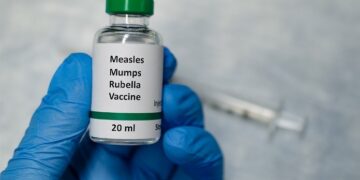The Algerian Olympic boxing champion at the Paris 2024 Games, Imane Khelif, has been revealed to have male chromosomes, according to a sex-test report from the 2023 World Championships that has now been made public.
The revelation comes just 36 hours after World Boxing ruled that Khelif must undergo sex screening to be eligible for future participation in female competitions.
The medical document, originally produced in March 2023 during the World Championships in New Delhi, was released by American journalist Alan Abrahamson via the 3 Wire Sports website.
The test, carried out by Dr Lal Path Labs—a laboratory accredited by the American College of Pathologists and certified by the Swiss-based International Organisation for Standardisation—states unequivocally: “Chromosome analysis reveals male karyotype.” The findings indicate that Khelif possesses XY chromosomes, which are typically associated with male biological sex.
These results were instrumental in Khelif’s disqualification from the 2023 championships, yet the IOC allowed her to compete in Paris due to the female designation on her passport.
The IOC has since come under intense scrutiny, particularly as World Boxing adopts a stricter approach to athlete eligibility.
IOC spokesman, Mark Adams, had previously dismissed the chromosome test as “ad hoc” and “not legitimate” during a tense press conference in Paris.
However, the credibility of the test has now been reinforced by its certification and traceability to an internationally recognised laboratory.
IOC President Thomas Bach went even further, alleging the test results were part of a “Russian-led misinformation campaign.”
He cited the loss of IOC recognition for the International Boxing Association (IBA)—led by Russia’s Umar Kremlev—due to concerns over ethics and financial mismanagement.
Despite the IOC’s dismissal, World Boxing has now formally ruled that any athlete wishing to compete in women’s categories must undergo a genetic sex test if they are over 18.
This includes a polymerase chain reaction (PCR) test, which identifies chromosomal material via saliva, blood, or mouth swab.
Khelif has yet to provide any evidence of having female chromosomes in the nine months since questions first emerged about her eligibility.
Although the 26-year-old remains defiant and has vowed to defend her Olympic title at Los Angeles 2028, her future in women’s boxing remains deeply uncertain.
The controversy intensified in Paris last year when both Khelif and Taiwan’s Lin Yu-ting won Olympic gold despite having been barred by the IBA in 2023 for failing to meet chromosomal criteria for female classification. Their victories sparked widespread outrage from athletes and national federations alike.
Angela Carini of Italy, who was Khelif’s first opponent in Paris, recounted: “I was punched so hard, I feared for my life.”
Mexico’s Brianda Tamara Cruz, who had fought Khelif in 2022, added: “I don’t think I had ever felt like that in my 13 years as a boxer, nor in my sparring with men.”
Latin American federations played a key role in shaping World Boxing’s firm stance. In correspondence seen by Telegraph Sport, the Honduran federation told the Women’s Rights Network that “necessary measures should be taken so that only women by birth can compete in women’s competitions.”
The Peruvian federation echoed this call, urging the international body to ensure the “protection of women.”
World Boxing, which is provisionally approved to oversee Olympic boxing at the 2028 Games, appears determined to uphold what it calls the “reality of sex” to ensure fairness and safety in the women’s category.













































Discussion about this post